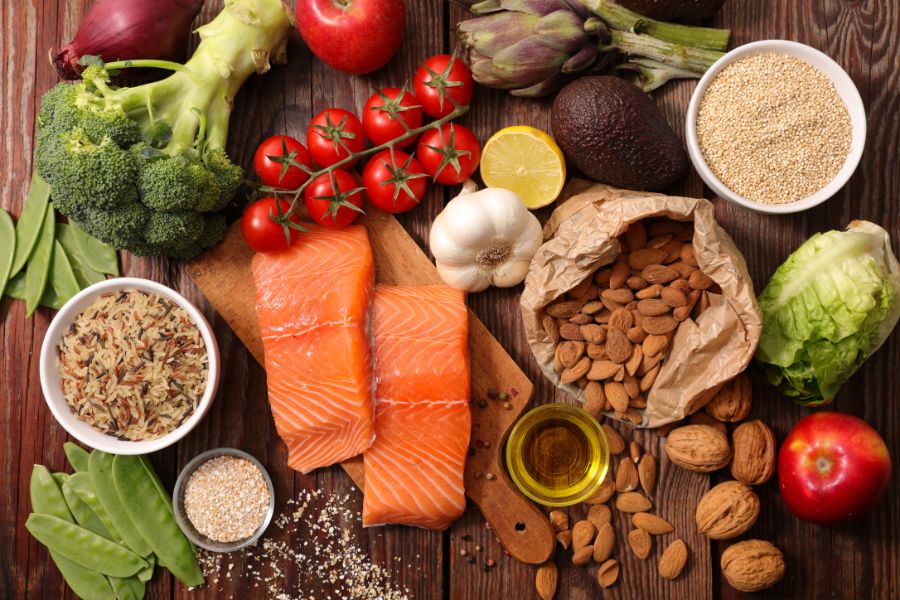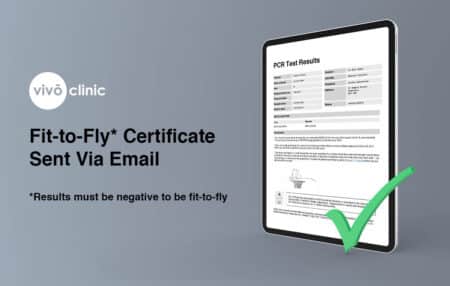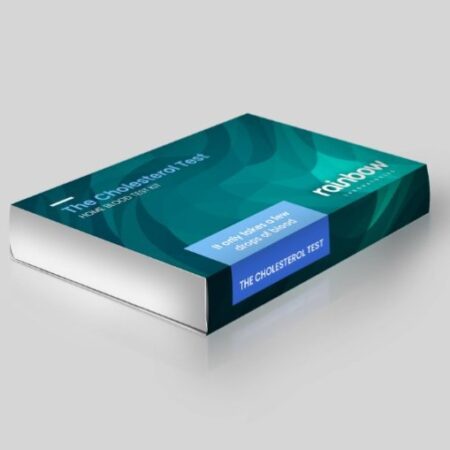5 easy ways to lower your cholesterol
High cholesterol is a major health concern; read on to find out why and how you can lower your cholesterol levels.
Cholesterol is a fatty substance which travels around your body via the bloodstream. Our bodies need small amounts of cholesterol to form cell membranes. Plus, it is essential in the production of adrenal hormones, testosterone, and oestrogen. Along with other important roles, cholesterol is also essential in the body’s production of vitamin D.
However, a high level of cholesterol can be potentially fatal. It is extremely important to keep your cholesterol levels in check.

The two main types of cholesterol most relevant to heart health are:
- High-density lipoproteins or HDL cholesterol. This type is referred to as the ‘good’ cholesterol.
- Non-high-density lipoproteins or non-HDL cholesterol. This is the ‘bad’ cholesterol type. Previously, it was believed that only low-density lipoprotein or LDL cholesterol caused harm, but studies (including this 2018 one) have proven that other non-HDL cholesterol is also damaging.
HDL cholesterol aids in transporting all unused cholesterol from the bloodstream to the liver. The liver then breaks down and expels the excess cholesterol from the body. When the levels of non-HDL cholesterol rise, you begin developing the risks associated with serious heart disease. Non-HDL cholesterol, including LDL cholesterol, is best kept as low as possible.
Get your cholesterol levels checked today
Risks of high cholesterol
While many people have high cholesterol levels due to an inherited condition called familial hypercholesterolaemia (FH), most people develop high cholesterol levels due to unhealthy lifestyles.
As non-HDL cholesterol travels through your blood vessels, it leaves behind fatty deposits. High cholesterol means the fatty deposits in your arteries accumulate and build up. Subsequently, blood flow becomes constricted, and you may develop high blood pressure. High cholesterol and blockages of arteries can very easily go unnoticed until a clot forms leading to a heart attack or fatal stroke.
High cholesterol increases your risks of (and eventually causes):
- Heart attacks
- Strokes
- Atherosclerosis (narrowing of arteries)
- Peripheral arterial disease
- Transient ischaemic attack
- Angina
Symptoms of high cholesterol
High cholesterol does not have any symptoms or signs. The condition is an especially insidious one: you will not know if you have it until it may be too late. It can only be detected via a blood test for cholesterol.
Therefore, it is extremely important to get checked regularly.
How you can lower your cholesterol levels easily
If a person is diagnosed with familial hypercholesterolaemia (FH), they will need to undergo statin drug therapy. They may be prescribed other drugs as well, like PCSK9. This is because people with FH will develop high levels of cholesterol regardless of how healthy their diet or lifestyle may be.
Similar medications may be prescribed to people with extremely high cholesterol that is not caused by FH. However, there are certain lifestyle adjustments that you can make to lower your cholesterol levels. Even if you are on medication, keeping your cholesterol levels in check is a continuous effort.
The following changes in lifestyle will not only help but, in some cases, maybe absolutely vital when it comes to improving your cholesterol.
1. Make your diet heart-healthy
The first step to a healthier heart and lower cholesterol levels is to reduce or, if possible, altogether eliminate trans fats and saturated fats from your diet. Foods in this category include:
- Store-bought biscuits, crackers, and cakes
- Processed red meats like sausages and meat pies
- Red meat
- Full-fat dairy products like cream, butter, lard, and ghee
- Hard cheeses like cheddar
- Foods with coconut oil and palm oil
Reducing or cutting out foods from your diet is only half the effort. There are foods that are not only healthier but also contribute to heart health. You should increase the number of foods containing omega-3 fatty acids and soluble fibre in your diet. These include:
- Fatty fish like salmon, mackerel, and herring
- Nuts
- Seeds
- Oatmeal
- Kidney beans
- Brown rice
- Bread
- Pasta
- Fruits
- Vegetables
Whey protein supplements can also aid in the regulation of cholesterol and blood pressure.

2. Exercise more frequently
If you are unable to commit to exercising more, you must try to, at the very least, increase your physical activity.
Raising the frequency of your workouts can increase the levels of HDL cholesterol in your blood. The more the quantity of good cholesterol you have in your circulation, the more efficient is the clean up of the bad cholesterol from your blood vessels.
The NHS website recommends a minimum of 150 minutes of exercise each week.
If exercising is not your thing or your daily routine does not allow it, increase your physical activity. Consider walking for short commutes rather than driving. Try cycling to work. Take the stairs whenever you have a choice.

3. Quit smoking
Smoking causes a significant reduction in the HDL cholesterol level. That is, less good cholesterol when you smoke. In addition to increasing your cholesterol levels, smoking contributes to the increase in the risk of strokes, serious heart disease, high blood pressure, and cancer.
The benefits when you quit smoking happen almost instantly. Your blood pressure recovers from spikes triggered by cigarettes within the first 20 minutes of quitting. Within the next 3 months, your blood circulation improves. A year after quitting, the risk of serious heart disease is halved.
Although the title of this article does suggest that these are ‘easy’ ways to lower your cholesterol, stopping smoking can, in fact, be exceptionally challenging for most people. If you have trouble quitting, do contact your GP or get support from the NHS Stop Smoking Service.

4. Reduce your alcohol intake
Excessive consumption of alcohol, like smoking, contributes to higher risks of strokes, serious heart disease, and high blood pressure. People who drink alcohol are recommended to drink in moderation.
The NHS website advises drinking no more than 14 units of alcohol per week and ensuring going several days a week without alcohol. The advice also suggests avoiding binge drinking (drinking a lot of alcohol in a relatively short period of time).
5. Lose weight
Even a few extra pounds over the maximum of your ideal BMI (body mass index) can raise your cholesterol level. While changing your diet and exercising more can take you a long way to shedding the extra weight, a little deliberate tweaking in your daily life can help you get there faster. Try replacing your full-fat fizzy drinks with the diet or sugar-free options. Have your tea without sugar. Stay off deep-fried fast food; try a salad or light sandwich instead. Increase your physical activities. Use the stairs more often, even if an escalator or elevator is available.

What VIVO Clinic’s Blood Test for Cholesterol looks for?
VIVO Clinic’s Blood Test for Cholesterol checks for levels of the following:
- Total cholesterol – this is the overall amount of cholesterol present in your blood
- HDL cholesterol – High-density lipoprotein cholesterol is the ‘good’ cholesterol that is essential for multiple functions of the body
- LDL cholesterol – Low-density lipoprotein cholesterol is the ‘bad’ cholesterol
- Triglycerides – a kind of blood fat. High levels of triglyceride can indicate that your calorie intake is higher than what you are burning
- Total cholesterol/HDL cholesterol ratio – this ratio determines the total non-HDL cholesterol level.
Since there are no observable symptoms of high cholesterol, having a blood test done is the only way to determine whether you have the condition.
Blood tests for heart health
Related Articles

How do Day 2 lateral flow tests work?
VIVO Clinic offers a range of COVID-19 travel tests, including cheap Day 2 lateral flow tests. Here is everything you...
Fit-to-Fly Certificate Explained
Many popular holiday destinations require you to produce a fit-to-fly certificate before being permitted to enter the country. A fit-to-fly...
COVID-19 Vaccine Development Progress (Live)
The process of developing a vaccine is being expedited. Numerous pharmaceutical companies and scientific research intuitions are in the process...1,000,000
Customers
Felt so comfortable and welcome. Explained in detail about my treatment and took the time to interact.
Very professional and friendly. The HIFU treatment was very comfortable and I felt relaxed.
Have more appointments booked so looking forward to my next visit.
Thank you again you are absolutely fantastic 😀
 close
close








